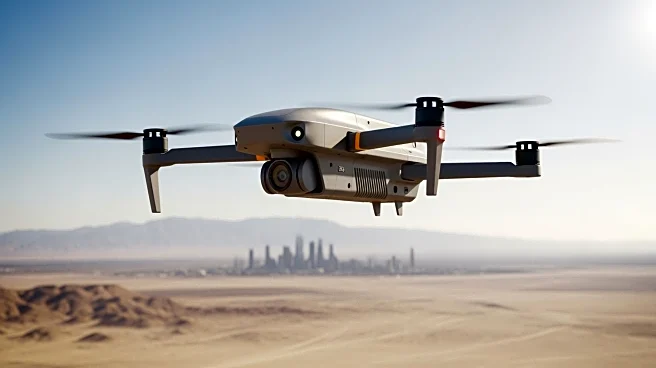What's Happening?
The U.S. military has begun operating surveillance drones over the Gaza Strip to ensure compliance with a fragile cease-fire between Hamas and Israel. The drones are operated from a U.S. command center established on the outskirts of Kiryat Gat, with the mission
described as historic by U.S. Secretary of State Marco Rubio. The operation aims to provide independent monitoring of the situation on the ground, rather than relying solely on Israeli reporting. The U.S. command center includes personnel from several countries, highlighting Washington's direct oversight of the cease-fire's implementation.
Why It's Important?
The deployment of U.S. surveillance drones in Gaza underscores the United States' commitment to maintaining peace and stability in the region. It reflects Washington's determination to safeguard the peace framework brokered by President Trump and his team. The operation highlights the importance of international cooperation and the role of the U.S. in facilitating dialogue and monitoring compliance with cease-fire agreements. It also emphasizes the strategic significance of the region and the need for ongoing efforts to prevent conflict and promote humanitarian assistance.
What's Next?
The U.S. command center will continue its efforts to maintain the cease-fire, coordinate humanitarian assistance, and assemble an international stabilization force for Gaza. The mission involves avoiding flashpoints and ensuring the safe distribution of aid. The U.S. will work with partner nations to structure the stabilization force and secure the necessary international mandate. The long-term goal remains the reconstruction of Gaza and the prevention of future violence.
Beyond the Headlines
The U.S. operation in Gaza raises questions about the balance of power and the role of international actors in regional conflicts. It highlights the ethical and legal dimensions of surveillance and monitoring, as well as the cultural implications of foreign intervention. The mission's success may influence future diplomatic efforts and contribute to a broader dialogue about peace and security in the Middle East.

















